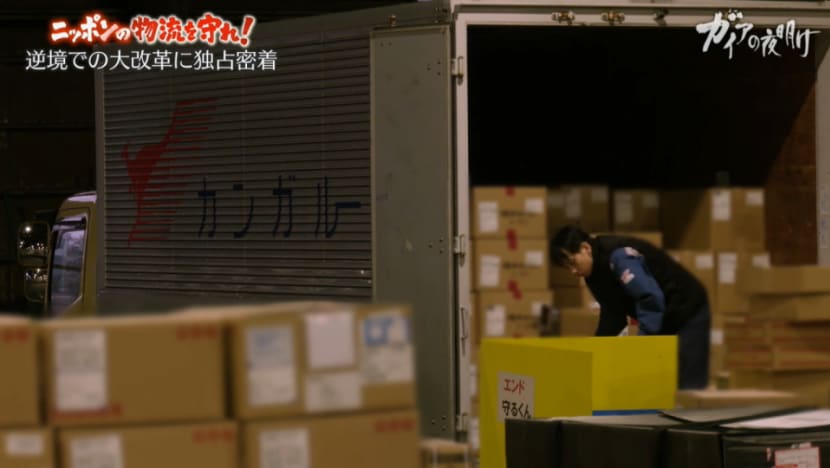Gaia Series 47 : Protect Japan's Logistics!
This week’s episode spotlights how Japan’s logistics industry is evolving to meet new regulations and create a balance between efficiency and employee welfare.


This audio is generated by an AI tool.
Facing regulatory changes and the many pressures on delivery drivers, this week’s episode shines a spotlight on how Japan’s logistics sector is evolving.
In the ever-evolving world of logistics, Japan stands at a significant crossroads. Regulatory changes that came into effect in April this year - limiting overtime and improving working conditions for drivers - are set to reshape the industry fundamentally. This transformation is not just a legislative adjustment but a deep, societal shift towards recognising the human sacrifices behind our daily conveniences.
Take Hideo Nakahara, a long-serving driver at Seino Transportation, who reflects on the impact of these changes. "It has been a massive change. We all feel it," he admits. His son, 24 is also a driver. Nakahara's sentiment underscores a nationwide adjustment affecting thousands of workers across the logistics sector. The regulatory shift caps annual overtime at 960 hours, aiming to mitigate the chronic overwork prevalent in the industry.
The narrative of Nakahara's experience is underscored by alarming statistics that highlight the need for reform. Japan sees over 5 billion parcels delivered annually, driven by a surge in online shopping. However, the increased demand correlates with rising risks, as evidenced by the logistics sector reporting more than 400 serious accidents each year. Additionally, the sector faces a significant labour shortage, with a job offer to applicant ratio of 2.14 to 1, making recruitment a critical challenge.
At the heart of these changes are the drivers—individuals like Nakahara, who have spent decades navigating the roads to deliver everything from essential goods to occasional indulgences to our doorsteps. Their stories are of long hours, missed family meals, and the personal toll of a demanding job.
Mitsufumi Sakai, an independent delivery driver, illustrates the daily grind many face. Delivering up to 400 parcels a day on a purely commission-based income, Sakai's testimony sheds light on the harsh realities of the logistics workforce. "It's all commission, so it depends on how many you can deliver," he explains, highlighting the precarious nature of his work-life balance and the financial pressures of self-funding fuel costs.
The challenges are echoed by logistics company executives, who understand the need to implement changes. Michiaki Komai of Seino Transportation discusses their strategy: "We are continuously looking for ways to streamline operations without compromising the well-being of our drivers." These sentiments are part of a growing trend among companies to balance efficiency with ethical labour practices.
Environmental concerns are also becoming a priority. The logistics sector, heavily reliant on fossil fuels, faces increasing pressure to reduce its carbon footprint. Innovations in vehicle technology, such as electric trucks, and strategic changes in route planning to minimise emissions are steps being discussed to address these environmental impacts.
Looking ahead, the logistics industry must navigate these transformations while ensuring it does not revert to practices that compromise worker welfare. For instance, discussions are underway about enhancing driver training programs, improving vehicle maintenance to prevent accidents, and redesigning routes to reduce unnecessary mileage and fuel consumption.
"Adapting to regulatory changes is not just about compliance; it's about leading the way for a sustainable future," says a spokesperson from Yamato Transport. This perspective is shared across the sector, with companies like Sagawa Express investing in advanced training simulators for drivers to enhance safety and reduce accident rates.
The personal toll on logistics workers underscores the urgent need for these reforms. As companies like Seino Transportation adapt to these changes, they not only comply with new laws but also pave the way for a more ethical and sustainable logistics landscape.
As Japan's logistics industry evolves, it finds itself at a crossroads. Balancing efficiency with the well-being of its workforce, addressing environmental concerns, and navigating economic pressures are challenges that require harmonious solutions. The stories of Nakahara and Sakai featured in this week’s episode are just two among thousands, each highlighting the human elements behind our everyday conveniences. As the sector transforms, these personal experiences will shape the future of logistics, making it not only more efficient but also more humane.












